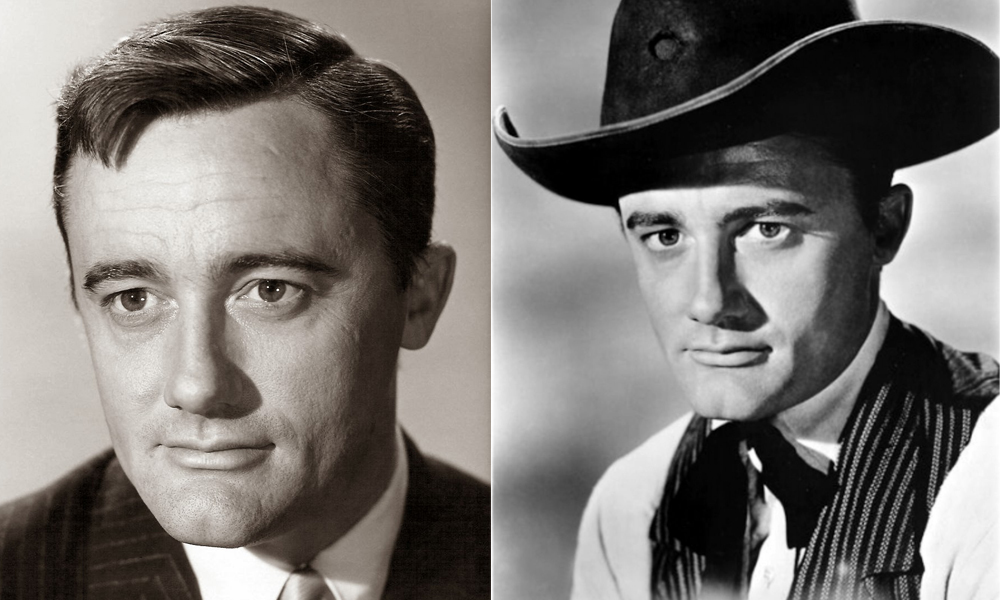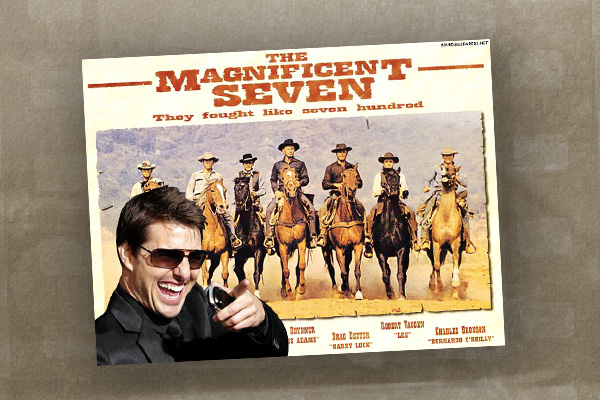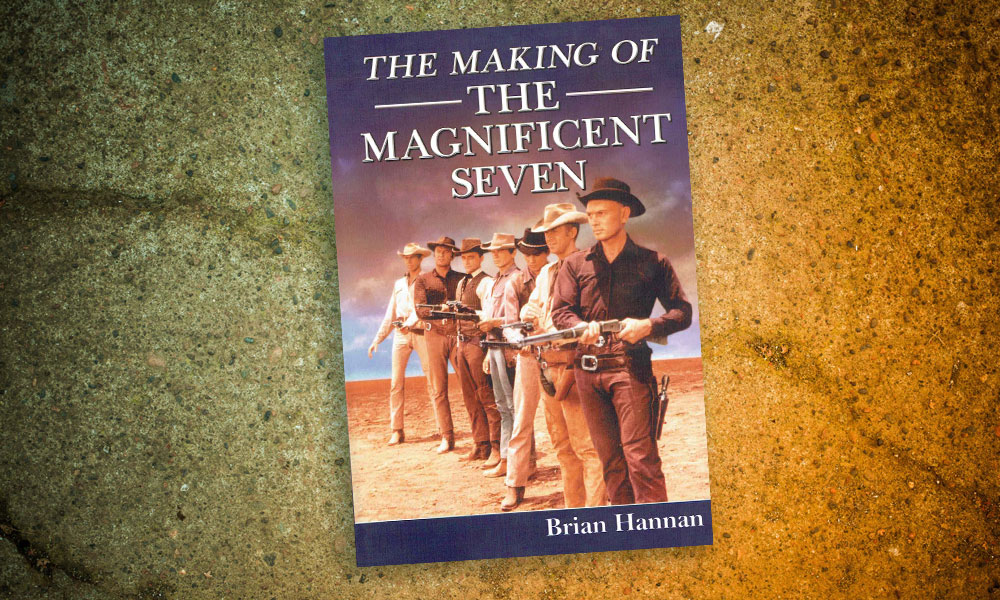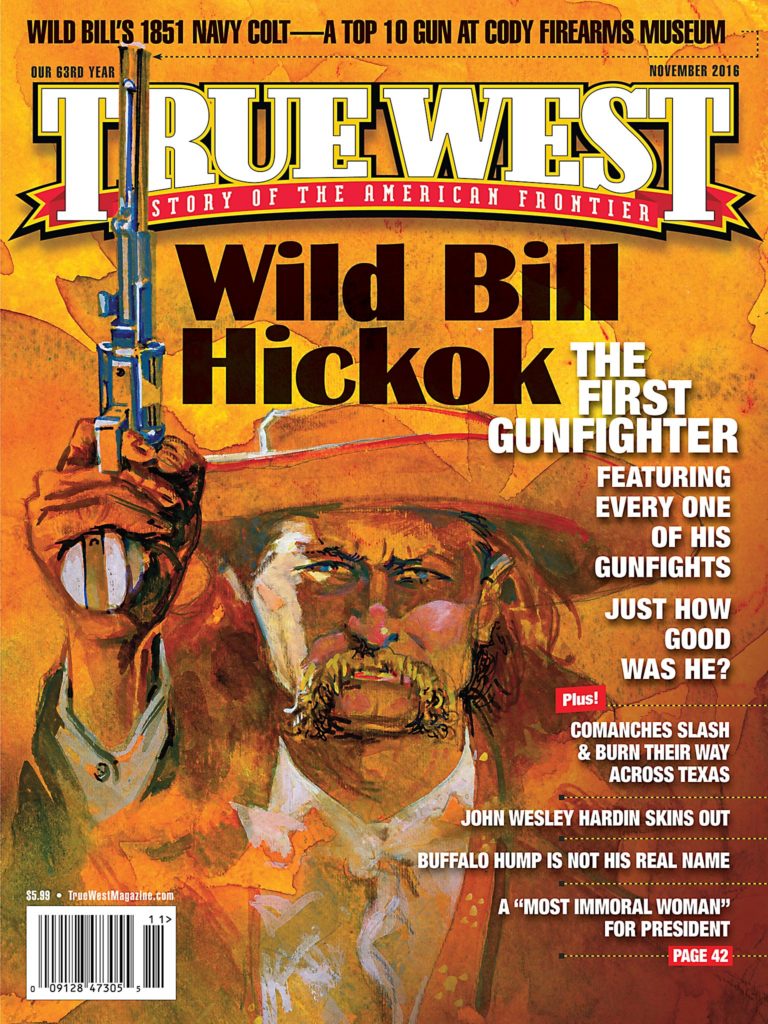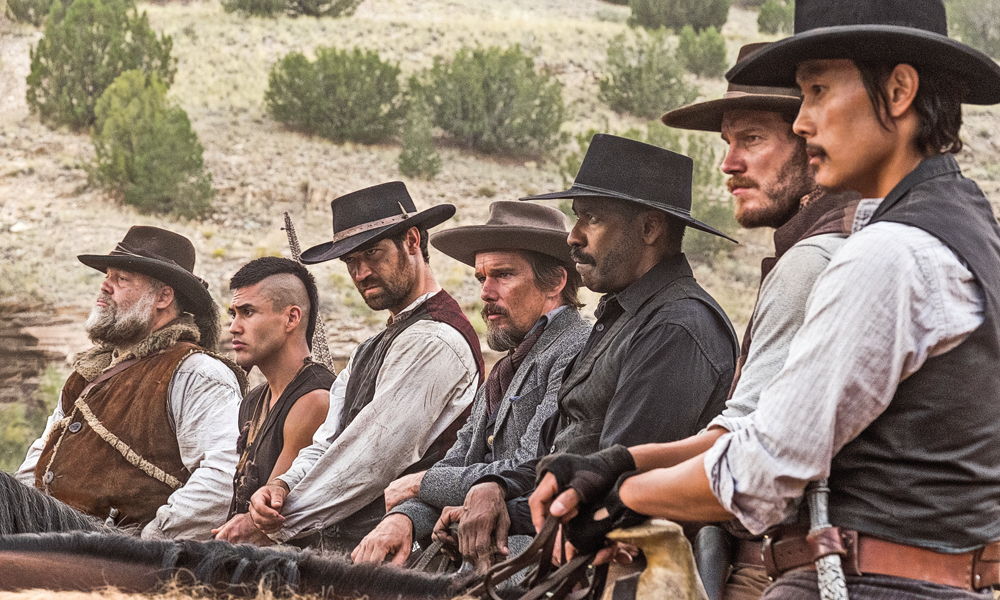
Remaking a classic movie is daring, and Director Antoine Fuqua made the challenge a double dare by remaking two: 1960’s The Magnificent Seven and the Japanese classic that movie is based on, 1954’s Seven Samurai. For the remake, Fuqua reunited with actors from 2001’s Training Day, Denzel Washington and Ethan Hawke.
The remakers have attacked their challenge with gusto. Richard Wenk, one of two credited screenwriters for the 2016 film, tells True West, “Antoine is almost savant-ish in the way he approaches action. He’s constantly trying to make sure it’s real, and the action just kept getting better.”
The action is, truly, magnificent. Stunt coordinator Jeffrey Dashnaw, of 2015’s The Hateful Eight, with his crew of more than 40, does a breathtaking job, as does Oscar-winning cinematographer Mauro Fiore.
But when remaking a classic, one must not lose sight of the elements that made a work a classic in the first place.
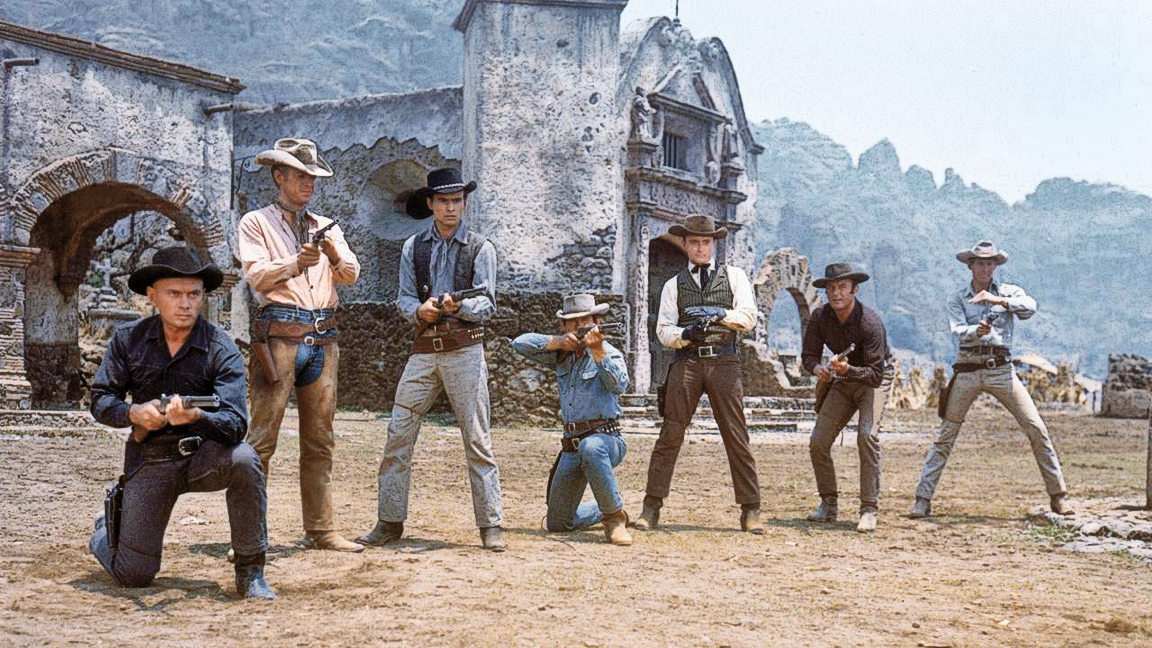
In Akira Kurosawa’s Seven Samurai, set in 16th-century Japan, a farming village hires unemployed samurai to defend against bandits who have been robbing the harvests, although the village can pay only in food. The brilliant story of character, action, humor and hope made it appealing as a Western.
Producer Lou Morheim wangled the remake rights for $2,500. The only bona fide box office star going in, Yul Brynner, hoped to direct rather than star. But Walter Mirisch instead hired John Sturges, who had directed 1957’s Gunfight at the O.K. Corral. Mirisch recalled watching the original film with Sturges: “The two of us sat alone in a projection room…and had the best time ever, translating all of the sequences of Mr. Kurosawa’s movie into the Western motif.”
They switched the locale to Mexico where, again, farmers were victimized by bandits. These farmers went north to buy guns and instead hired unemployed gunmen who were willing to risk their lives for about $20 apiece.
The 1960 Western is crisply paced; the 2016 remake, ambling. The 1960 Western is full of humor; the 2016 remake rarely provokes a smile. Fuqua’s film shifts the locale from a Mexican village to a cliché frontier town under the thumb of the now-generic greedy land-cattle-oil-gold baron.
After a wincingly melodramatic opening, bounty hunter Sam Chisolm (played by Washington) rides into a different town, Shane-like, costume and whiskers, in an homage to Fred Williamson’s Westerns. A saloon arrest triggers a shoot-out, and Josh Faraday (Chris Pratt) comes to his aid. A woman who has fled the baron’s town a widow (Haley Bennett) hires Chisolm to drive out the villain. He assembles his seven.
In the 1960 classic, you learn all you need to about the seven in succinct glimpses: Charles Bronson’s character once made big money, but is now reduced to chopping firewood. Robert Vaughn’s character is on the lam from an honor double murder.
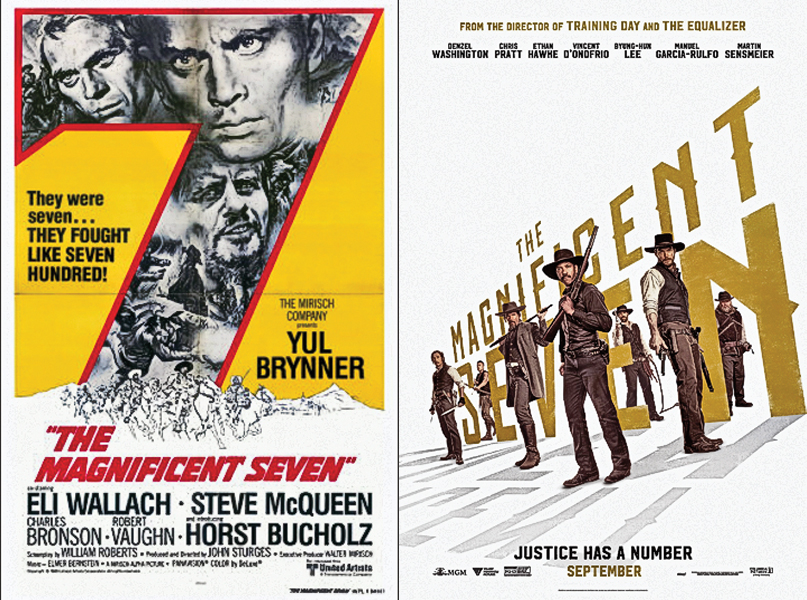
In the remake, more time is spent introducing the characters, but you get less of a sense of them. While Chisolm’s seven are more diverse, you learn nothing about these characters beyond “he’s a Mexican; he’s an Asian; he’s an American Indian.”
In all three versions, men who have been selfish in the past risk their lives to do good. The two classics are tales of redemption; the men face death without gain. In the remake, redemption is blurred because we never learn if the leather pouch that’s being tossed around holds a little money or a lot.
This lack of crucial detail plagues the picture. Until the seven free the enslaved gold miners, you never have any inkling that enslaved miners are out there to be freed. When Chisolm has his showdown with the baron, revealing their personal history, with absolutely no foreshadowing,the moment comes too late to matter; it feels like the filmmakers’ afterthought.
A hero can only be as heroic as his villain is formidable, and the baron villain, the talented but horribly miscast Peter Sarsgaard, comes off as the sort of twerp any one of the seven could have taken on with both arms tied behind their backs. The comparison of that villain to the bandit leader Calvera is ludicrous. Eli Wallach played Calvera so richly that it has become the portrayal by which many bandit characters are judged.
The 1960 Western was a career-making film for the actors, who had to be signed quickly, before a looming Screen Actors Guild strike. Bronson became the highest-priced actor in Hollywood. Vaughn grew into his world famous role in the late 1960s’ The Man from U.N.C.L.E. James Coburn parlayed his near-silent role into stardom and ended up with an Oscar in 1999. Steve McQueen, then starring on Wanted: Dead or Alive, wanted the part so bad that he caused a car wreck to get out of his series commitment; the ultra-cool star earned an Oscar nomination seven years later.
Washington, Hawke, Pratt and Vincent D’Onofrio are already famous. This less-than-magnificent film in their otherwise stellar careers will, unfortunately for Westerns fans everywhere, disappoint more than reinforce their star power.
Henry C. Parke is a screenwriter based in Los Angeles, California, who blogs about Western movies, TV, radio and print news: HenrysWesternRoundup.Blogspot.com


